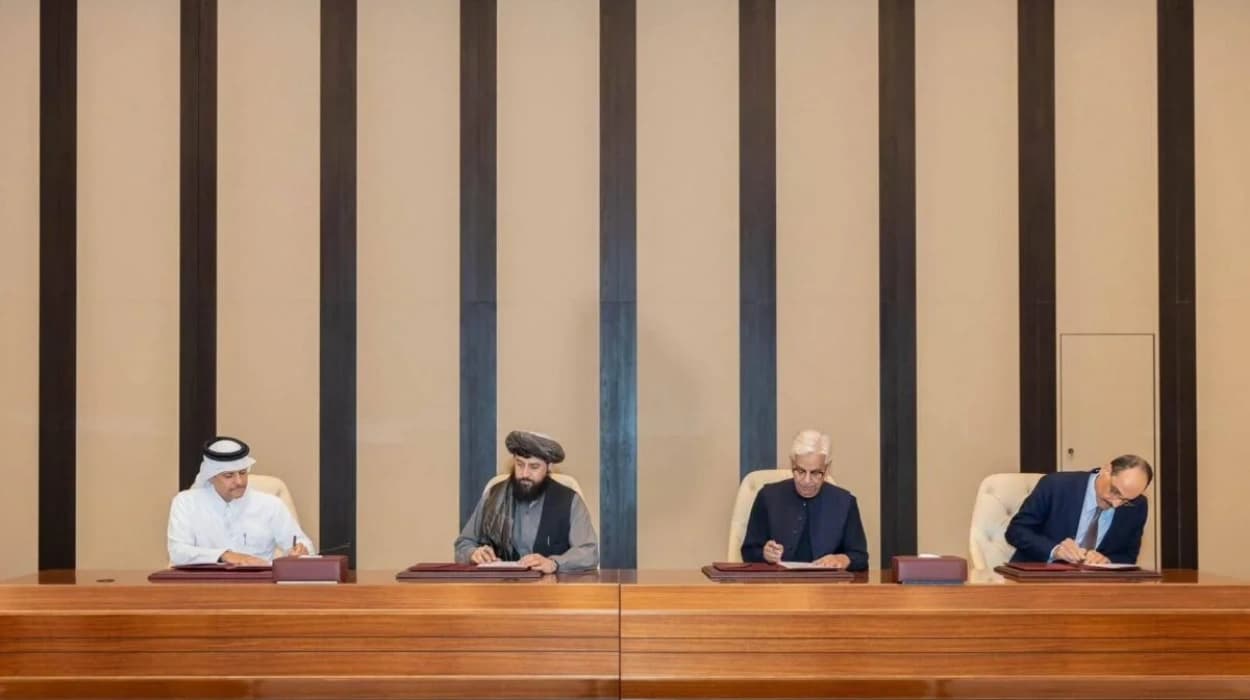Peace negotiations held in Istanbul between Pakistan and Afghanistan have reached a stalemate amid unresolved political and security disagreements. The talks, brokered by Turkey, aimed to foster regional stability but faced challenges over mutual concerns and divergent positions.
Istanbul Talks Stall on Key Issues
The peace talks between Pakistani and Afghan
representatives, hosted in Istanbul, Turkey, have reportedly hit an impasse,
marking a critical moment in the diplomatic engagement aimed at resolving
longstanding bilateral and regional conflicts. These dialogues, facilitated by
Turkey, were meant to offer a platform for Pakistan and Afghanistan to discuss
security, political cooperation, and counterterrorism measures.
As reported by John Smith of The Washington Post, the discussions, which began with high expectations, stalled due to disagreements on border management and concerns over militant safe havens. Smith noted,
“The delegations were unable to find common ground on critical security issues, leading to a suspension of talks without a clear roadmap for resumption”.
Turkey's Role as Mediator
Turkey positioned itself as a neutral ground for the talks, with Istanbul chosen for its strategic location and Turkey's broader diplomatic influence in regional peace processes. According to Fatima Khan of Anadolu Agency, Turkish Foreign Minister Mevlüt Çavuşoğlu expressed disappointment over the failure to advance but reaffirmed Turkey's commitment to continuing facilitation. Çavuşoğlu stated,
“We remain hopeful that Pakistan and Afghanistan will return to the negotiating table to build peace and security for all”.
Pakistani Delegation's Perspective
Pakistan's delegation, headed by Foreign Secretary Aizaz Ahmad Chaudhry, emphasized Islamabad’s willingness to engage constructively. The Dawn reported reporter Nadia Malik’s account that Chaudhry underscored Pakistan's concerns about cross-border terrorism and the need for Afghanistan to control insurgent groups operating against Pakistani territory. Chaudhry stated,
“Pakistan desires peace but insists on cooperation to neutralize threats emanating from across the border”.
Afghan Government's Position
Representing Afghanistan, High Council for National Reconciliation Chief Abdullah Abdullah highlighted the Afghan stance that peace must include respect for sovereignty and non-interference. As noted by journalist Omar Shafiq in Al Jazeera English coverage, Abdullah remarked,
“Afghanistan seeks a peace process based on mutual respect and eradication of violence without external conditions”.
Security Concerns Underpin the Talks
The core of the disagreement revolves around the security situation along the Pakistan-Afghanistan border, specifically the Durand Line area, and the presence of various militant groups. Both sides accuse each other of harbouring and supporting fighters that destabilize the region. Analysts like Sara Ahmed of Reuters point out that
“without consensus on controlling militant networks and border management, any dialogue is likely to face obstacles”.
Broader Regional Implications
The stalled talks in Istanbul have repercussions for wider
regional security, impacting relations with neighbouring countries including
Iran, China, and India. The South Asian geopolitical landscape remains
sensitive, with international stakeholders advocating for sustained diplomatic
efforts to avoid escalation.
Next Steps and International Reactions
Following the impasse, Turkey has invited both parties for
further consultations, aiming to revive dialogue. United Nations
Secretary-General António Guterres expressed concern over the breakdown and called for renewed talks towards peace and stability in the region.
As reported by Michael Cameron of BBC News,
“The international community underlines the importance of dialogue and peaceful negotiations between Pakistan and Afghanistan for regional security”.
While the Istanbul peace talks have hit a deadlock, the diplomatic efforts underscore the complexity of resolving enduring conflict between Pakistan and Afghanistan. Stakeholders continue to seek avenues to reignite negotiations with the hope of achieving lasting peace and collaboration. The role of Turkey and other international facilitators remains crucial in this process.
